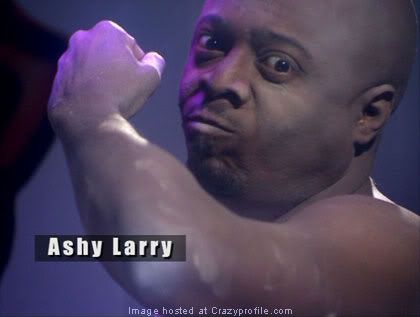New fancy place put in new sidewalks this summer and they do not want any salt on the new concrete. What can I put on the new concrete that will not damage the new concrete?

What de icer works for new concrete??
kbros
21 - 40 of 61 Posts
Joined
·
2,118 Posts
What about Liquid Brine..I dont know much about it , but it does have salt in it ...Right...Cant spray that on concrete eather...So all you guys spraying brine...Sell your equipment....Because the people from Kentucky and a few others say SALT is the DEVIL!!!! ...And it will ruin your concrete..... :waving:
:waving:
Joined
·
1,032 Posts
I have always been told not to use salt on concrete. All of the company's that i have worked for in this area have said the same thing, they all use calcium. lol
I'm not an expert in anything so i'll take you guy's word for it.
I'm not an expert in anything so i'll take you guy's word for it.
Joined
·
141 Posts
Crete - Not everyone. Just those of us who have taken over contracts where Parking Blocks in asphalt lots have nearly completely deteriorated from years of heavy salting. YET the asphalt remains virtually unscathed.cretebaby;910891 said:Is everyone from Kentucky against salt and concrete?
Where sidewalks have large pitting areas ONLY at the bottom of formed handicapped ramps (ie where salt may get slung) yet the remainder of said walks, even aggregate is unharmed using blends or calcium.
Want pics? I got plenty of examples I could share....
Joined
·
141 Posts
And isn't it the Mortons Saf-T-Salt bags that say "remove excess from concrete immediately to prevent damage" (or something to that effect - I could go grab a bag and give verbatim if its that important)
Joined
·
4,210 Posts
Yes please so we can explain the exact science AGAIN of it even though I already gave the "for dummies version" a couple posts up and there are sooo many threads already out there on this topic.beverlylawncare;911191 said:Crete - Not everyone. Just those of us who have taken over contracts where Parking Blocks in asphalt lots have nearly completely deteriorated from years of heavy salting. YET the asphalt remains virtually unscathed.
Where sidewalks have large pitting areas ONLY at the bottom of formed handicapped ramps (ie where salt may get slung) yet the remainder of said walks, even aggregate is unharmed using blends or calcium.
Want pics? I got plenty of examples I could share....
Here is a repeat...
"Salt/ice melt increases the freeze thaw cycle which is the only reason why people see an effect from using these products. It just hastens the inevitable."
The reason why other products seem to not do as much damage is they have a lower freeze point which means there are less freeze thaw cycles that the concrete goes through..
Joined
·
2,118 Posts
Just finished reading a research paper from the Portland Cement Association..cement.org....They say that Magnesium and Calcium Chloride are MORE aggressive towards paved surfaces than Sodium Chloride which is almost benign...Take it for what its worth..Just my 6 cents worth...:salute:show-n-go;911142 said:I have always been told not to use salt on concrete. All of the company's that i have worked for in this area have said the same thing, they all use calcium. lol
I'm not an expert in anything so i'll take you guy's word for it.
Joined
·
4,749 Posts
IMHPO, I would NOT use salt on these walks for a number of reasons:kbros;909958 said:New fancy place put in new sidewalks this summer and they do not want any salt on the new concrete. What can I put on the new concrete that will not damage the new concrete?
#1 The customer has requested NO salt. The contractor could have very well had a disclaimer in his contract against the use of de-icer's. Who do you think will be the first person everyone is pointing their fingers at IF the concrete would see winter damage?
#2 Most ready-mix associations DO NOT back the use of any deicers for the first winter, simply because the concrete may not have reached it's full strength potential yet. It is kind of a blanket I admit, but I would err on the side of caution.
#3 Whatever profit that could possibly be made selling de-icers could quickly & easily be burned up 10 fold in litigation. I learned long ago, "choose your battles wisely."
I couldn't find any info specific to Iowa, but here's a very simple opinion from my state's assoc.:
http://wrmca.com/cmt_technical_pwcc.htm
Joined
·
4,749 Posts
From what I understand, beet juice is best suited mixed with sodium or calcium as a supplement. I don't know that it is effective all on it's own.Mattsautobody;910800 said:what about beet juice??
Joined
·
6,085 Posts
You do realize that the makeup of the "blends" whether it be homogeneous or man made is most likely 90% or more salt.......don't you?beverlylawncare;911191 said:Where sidewalks have large pitting areas ONLY at the bottom of formed handicapped ramps (ie where salt may get slung) yet the remainder of said walks, even aggregate is unharmed using blends or calcium.
Want pics? I got plenty of examples I could share....
Joined
·
2,118 Posts
I think it boils down to..Whatever De-icer you intend to use..Use it wisely....More is not better..Use correct amounts for the situations...
Joined
·
2,570 Posts
i salt that cement until it looks all white and ashey like this guy...if it ain't piled up and bone white i did it wrong.
this thread NEEDS some humor...
i say it's bad.....and if you don;t liek it i'm gonna send Ashey Larry here to enforce it.....
![Image]()
this thread NEEDS some humor...
i say it's bad.....and if you don;t liek it i'm gonna send Ashey Larry here to enforce it.....

I have a very large landscaping company, (that is owned by an even larger construction company), that has been buying Ice Ban from me for a few years that, they use exclusively on new concrete. Please take this for what it is worth, but they seem to be very happy with the results. I concur with the statement that salt does not chemically attack concrete. As said earlier, salt simply speeds up the inevitable. Bad concrete is bad concrete.
Exactly correct--bad concrete is bad concrete.Unfortunately,just about all masons add water to get more cream faster and to make the slump easier to handle.Usually, this seems to happen on residential or better explained--where there is no inspector watching for someone to give the quick signal to the concrete truck driver to add some water.My Dad was the easiest going guy around and knew every possible detail about all the intricacies of concrete,but even in 95* heat and for an electrical duct bank protector,if one of his men gave that cutesie signal to add water,he'd rip him a new one.More water ruins concrete,plain and simple.This is why everyone thinks salt damages concrete,because it does,but only on poorly mixed/handled concrete.kpmsnow;912401 said:I have a very large landscaping company, (that is owned by an even larger construction company), that has been buying Ice Ban from me for a few years that, they use exclusively on new concrete. Please take this for what it is worth, but they seem to be very happy with the results. I concur with the statement that salt does not chemically attack concrete. As said earlier, salt simply speeds up the inevitable. Bad concrete is bad concrete.
Joined
·
3,642 Posts
All of them work on cement!
Joined
·
134 Posts
Combotherm it is a dow product.
Were we wash our sanders which is on a concrete pad all the salt has eaten away the concrete & even inside the shop when the trucks come in & sit all night & melt the concrete is coming apart....Make your own conclusions
Quick question you said paved....That to me is hot mix asphalt....Also I pave roads & driveways in the summer & you no those little small 1"-1.5"pot holes you know whats thats from, the guys dumping to much diesel on there shovels/rakes, the diesel eats up the "TACK" or emulsion what eva other parts of the country calls it.....it's not from MAG or CAL or SALTMatson Snow;911238 said:Just finished reading a research paper from the Portland Cement Association..cement.org....They say that Magnesium and Calcium Chloride are MORE aggressive towards paved surfaces than Sodium Chloride which is almost benign...Take it for what its worth..Just my 6 cents worth...:salute:
Joined
·
4,906 Posts
Pavement is any hard surface.TommyMac;915530 said:Quick question you said paved....That to me is hot mix asphalt....Also I pave roads & driveways in the summer & you no those little small 1"-1.5"pot holes you know whats thats from, the guys dumping to much diesel on there shovels/rakes, the diesel eats up the "TACK" or emulsion what eva other parts of the country calls it.....it's not from MAG or CAL or SALT
If the Portland Cement Assoc. is talking about pavemant it's pretty safe to assume they are talking about porland cement concrete pavement.
The milk house floor in our dairy barn is all eaten up and has never seen a bit of salt.TommyMac;915519 said:Were we wash our sanders which is on a concrete pad all the salt has eaten away the concrete & even inside the shop when the trucks come in & sit all night & melt the concrete is coming apart....Make your own conclusions
Make your own conclusion.
This is a good thread, good info , bad info
, bad info . Who was it or how was it said, something like " I can't compete with stupidity"
. Who was it or how was it said, something like " I can't compete with stupidity"
Joined
·
4,210 Posts
Well a map is flat so the Earth must be flat...
I don't know make your own conclusion.
I don't know make your own conclusion.
21 - 40 of 61 Posts
-
?
-
?
-
?
-
?
-
?
-
?
-
?
-
?
-
?
-
?
-
?
-
?
-
?
-
?
-
?
-
?
-
?
-
?
-
?
-
?
- posts
- 2.8M
- members
- 90K
- Since
- 1999
A forum community dedicated to ice and snow management professionals and enthusiasts. Come join the discussion about equipment, weather, snow management, classifieds, troubleshooting, maintenance, and more!
Explore Our Forums



